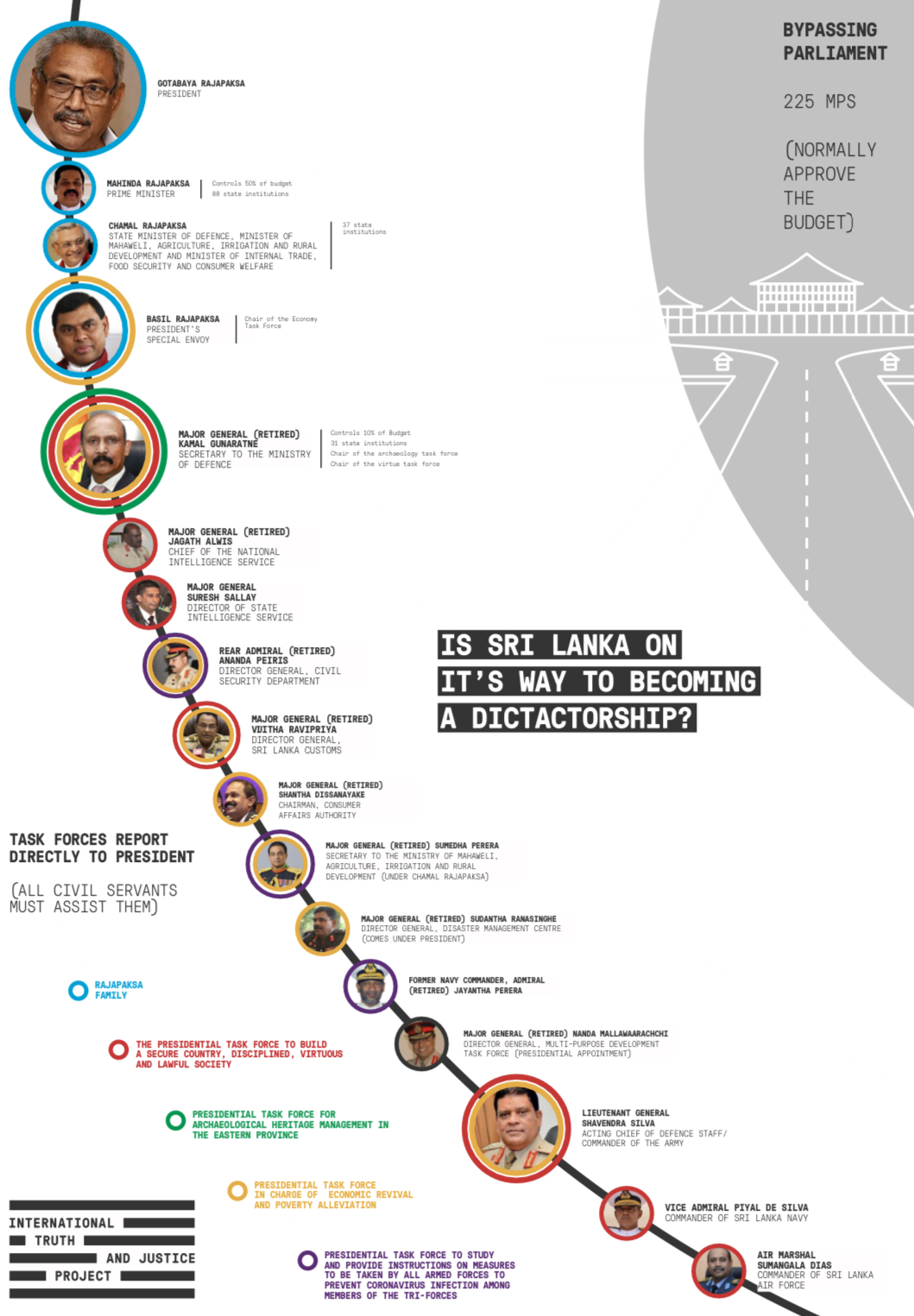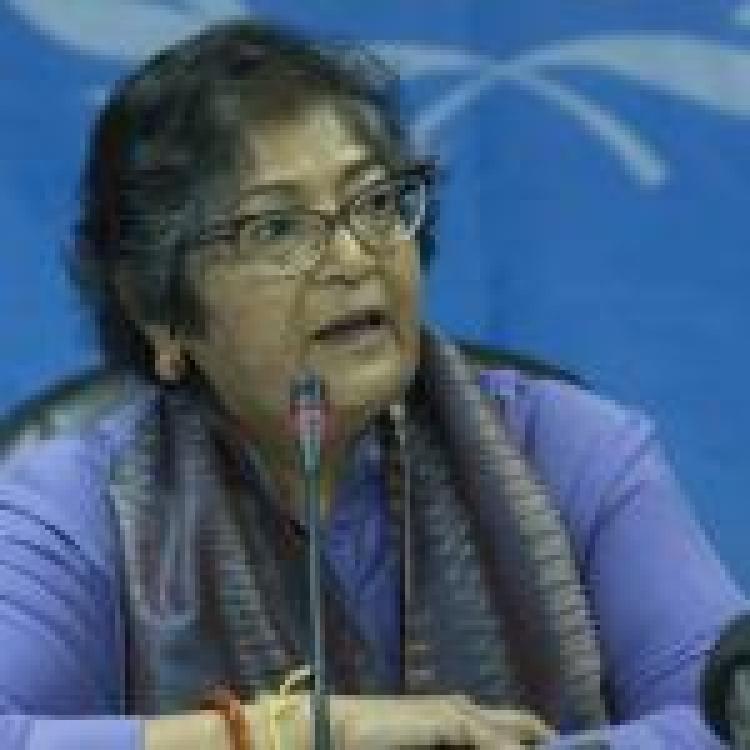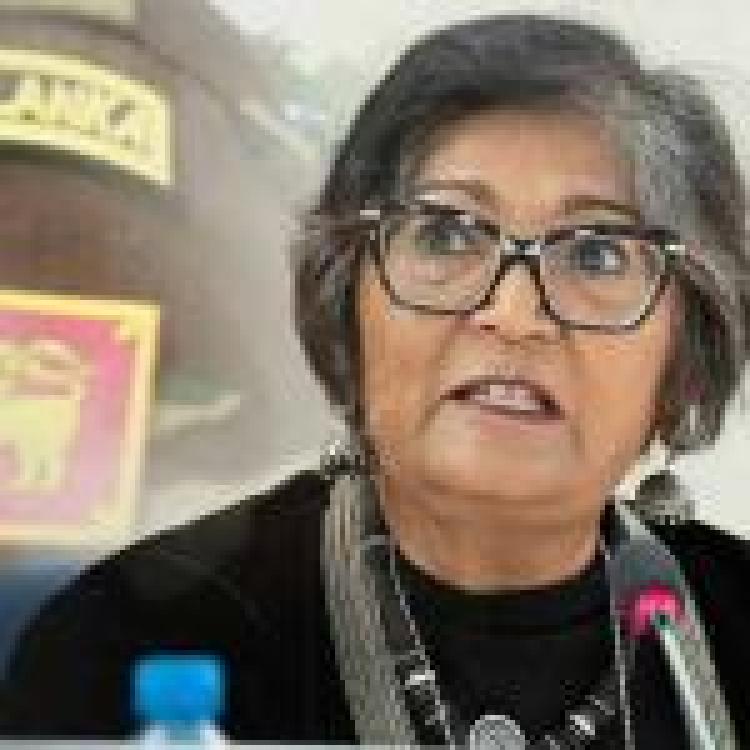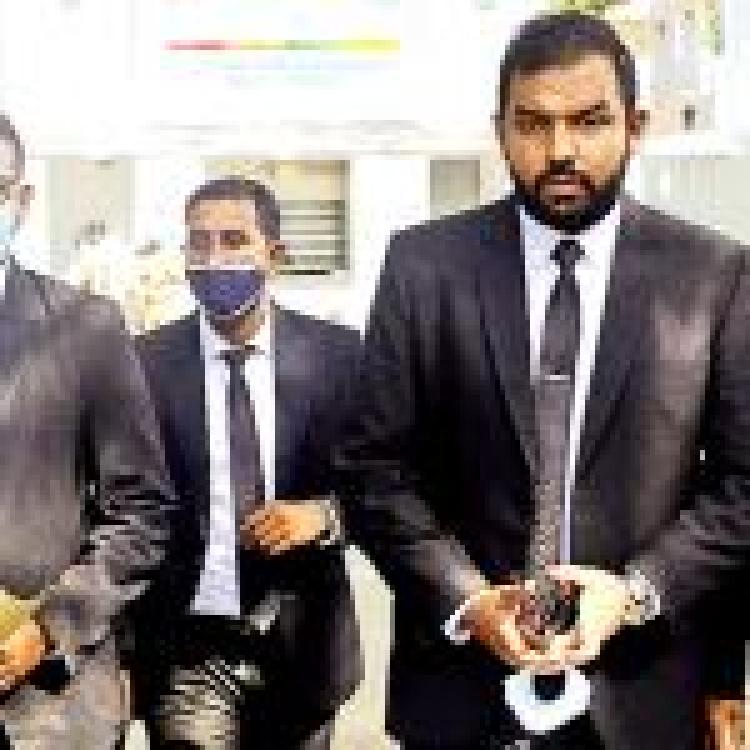
The International Truth and Justice Project (ITJP) have published a new infographic showcasing the authoritarian hold President Gotabaya Rajapaksa has imposed in Sri Lanka through “powerful militarised task forces that bypass the usual checks and balances of a democratically elected parliament.”
The infographic displays the formation of these unelected bodies as being exempt from the typical “scrutiny and oversight of parliament” and being made up from military, civil servant and family members. The president has made it compulsory for secretaries and ministers to report to these task force individuals – which have members accused of war crimes - and been warned of ‘ unspecified consequences’ if they fail to oblige.
A press release also accompanied the infographic and stressed that the forthcoming parliamentary elections, in which the President hopes to gain a two thirds majority to be able to alter the Constitution, is particularly worrying.
Problematic Presidential task forces
“The Task Forces risk creating a parallel state and potentially give the President, his family and former military comrades unparalleled control over patronage networks and the use of public assets,” said the ITJP’s executive director Yasmin Sooka. “More worrying is that this new schematic for exercising control could survive beyond the next elections, which are anyway expected to return a parliament compliant and subservient to the Rajapaksa family”.
Furthermore, it was stated that the President was also “allegedly allocating government funds and operating directly on a Budget on Account enabled by the absence of a sitting parliament for more than three months” and that a huge portion of government funds are going through Prime Minister, Mahinda Rajapaksa and Ministry of Defence head, Major General Kamal Gunaratne – both of whom have been accused of war crimes – with no apparent independent oversight.
The legality of the task forces is being questioned and described as being “administratively murky” by lawyers in Sri Lanka with its composition - made mainly of military, male, Sinhala and unelected individuals – also raising concerns.
A government characterised by ‘nepotism, patronage and militarisation’
“The latest developments centralise power and give even more untrammeled authority to the President’s key military allies who already enjoy enormous power through formal appointments,” said the ITJP’s Executive Director Yasmin Sooka. “This is the ‘deep state’ coming into the open,” she added. “It’s a structure of governance reminiscent of the President’s early role as an all-powerful district military coordinator during the crushing of the JVP in 1989 in Matale; he appears to be replicating this model of unfettered control over the entire nation”.
The press release notes members of the task forces who are civil servants, members who are military and family members, some of whom are accused of war crimes and involved in corruption cases. Many of the military members hold significant government positions and are afforded the power to control economy, security, media and all key aspects of life.
Despite manifesto pledges that “all appointments as heads of State institutions, corporations and statutory boards, and appointments to Boards of Directors will be based on merit and leadership abilities” it has been reported that the Rajapaksa directly control over 145 state institutions – even before the formation of the recent task forces.
Civil Servant members:
Ministry of Defence, D.M.S. Dissanayake; The Secretary to the Presidential Task Force to build a Secure Country, Disciplined, Virtuous and Lawful Society is Senior Assistant Secretary – was a suspect in the Avant-Garde floating armoury case.
D.S. Jayaweera; The Secretary to The Presidential Task Force in charge of Economic Revival and Poverty Eradication – suspected for academic falsification and investigated for misappropriation of funds in 2016.
S.B.Divaratna, Gamini Sedara Senarath and Dr. Priyath Bandu Wickrema have also been investigated for neglecting food supplies to Vanni in latter stages of the war, missapropriation of funds and corruption cases, respectively.
Many of these investigations into alleged corruption of officials from Rajapaksa’s previous government had been dropped around the time that Gotabaya Rajapaksa had been elected last year.
Military members:
Major General Kamal Gunaratne - chair of two of the new Presidential Task Forces and secretary of defence and currently assigned 31 key state institutions to his control in the present government.
Major General Sumedha Perera - member of two of the current Task Forces and served under Gotabaya Rajapaksa in the Gajaba Regiment in 1989 when the President was District Military Coordinator in Matale at a time when 700 Sinhalese were allegedly reported disappeared in state custody in the District.
Lt. General Shavendra Silva - sits on two of the Task Forces as well as holding the two most senior military posts in the country. He is an alleged war criminal and labeled as allegedly implicated in gross violations of human rights by the United States Government.
Family members:
Three of the President’s brothers are directly involved in running the country:
Mahinda Rajapaksa - Prime Minister and Minister of Finance, Economy and Policy Development, Minister of Buddhasasana, Cultural and Religious Affairs, Minister of Urban Development, Water Supply & Housing Facilities and Minister of Community Empowerment and Estate Infrastructure Development.
Chamal Rajapaksa - State minister of defence, Minister of Mahaweli, Agriculture, Irrigation and Rural Development and Minister of Internal Trade, Food Security and Consumer Welfare.
Basil Rajapaksa – Chair of the Economy Task Force. He too was investigated in five cases for alleged corruption under the last government. He is a dual US Sri Lankan citizen, and is not elected but acts as the President’s Special Envoy.
Read the full release here.




